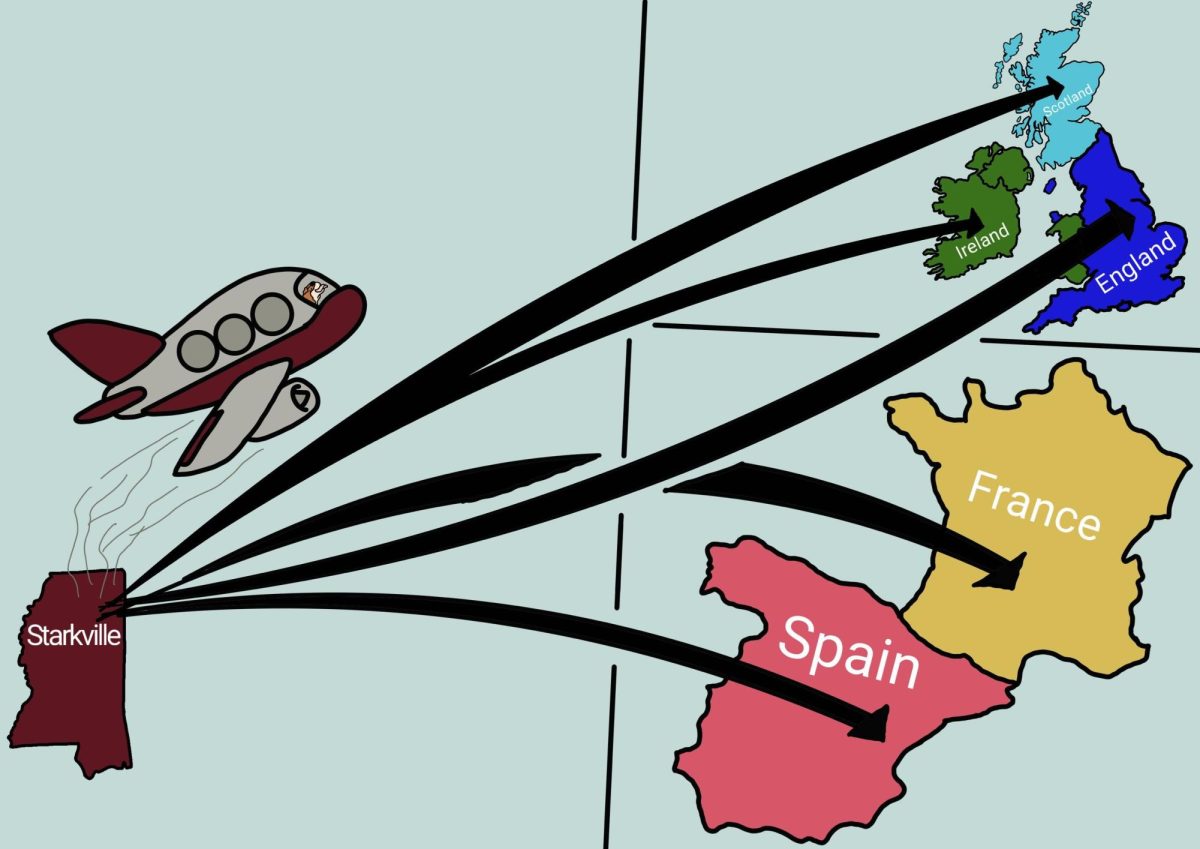Jerome Goddard, entomology professor at Mississippi State University, may work primarily in science, but he is not afraid to dive into science fiction. Goddard recently published his new novel “Living Memories” through Livingston Press. Goddard is an extension service professor in the Department of Biochemistry, Molecular Biology, Entomology and Plant Pathology. His new novel explores areas of neuroscience, the dangers of medical ethics and what would happen if memories became contagious. Goddard sat down with The Reflector to talk about “Living Memories.”
Q: Where did the Inspiration for “Living Forces” come from?
A: One day I was driving down the road thinking about biology and evolution and prions. A prion is a little misfolded proteins. Someone figured out they can be infectious agents, but they aren’t alive. It can’t reproduce. I got to thinking something doesn’t have to be alive to be affected by natural selection. They are animate but not alive. That was a bolt of lighting to me. It doesn’t have to be alive to function or have a purpose.
What if these trauma memories could be transferred to someone else? What if those memories reproduce so that people become infected with other characteristics? I wrote it up for a journal, and they liked it. What if your brain was sequestering these memories and then they can get out? I wrote it up in a novel because you can do whatever you want in a novel.
So the bad guy, Dex, figures this out: 1. He can infect people. 2. He can move memories from one person to another. 3. He can heal or erase memories. There are really are scientist out there who are working on this.
Q: Does Dex start somewhat ethical and evolve into the antagonist?
A: He really struggles with it from the start. Even the first time he says will be the last time. That’s what you really come away with at the end of the book: Science has gone array. Just because you can do something doesn’t mean you should.
Q: Is scientific evidence and ethics a huge issue right now with our current technology and culture?
A: It is. So Dex starts going behind his boss’s back and does animal tests and eventually moves to humans, and it all gets out of hand very quickly. Dex figures out that you can’t just mess with memories. You can’t have the good without the bad, and this affects people in the book very seriously.
Q: Do you think the transfer of memories will every be possible through medicine or technology?
A: After I wrote the book, someone sent me an article of a study done at Berkley. They showed different people a picture of a bird and measured their brain waves. The brain projected a sort of picture in their analysis that resembled the bird. From recording these brain signals, they could see what the person was thinking. It is primitive technology still, but it’s coming.
Q: This is the first major book you have worked on with your wife. How did Mrs. Goddard get involved?
A: My biggest fault is that I am very straight forward. I am a very linear writer. You can read what I write and see exactly what’s coming beat after beat. I finally asked my wife what she thought, and she helped me plot it out. We literally drew out the story and saw the twists and turns. She’s very good at it and helped the book really be better.
Q: You were invited to speak as an entomologist expert on “The Colbert Report.” What was that like?
A: I was scared. He can eat people up, and I talk all over the place. The producers called me and said they needed an entomologist, so I flew out and aired a week after the vice president of the United States. He came in very briefly and gave me the spill, and then we headed out.
Q: What is the biggest concern of the medical community right now?
A: Just because you can do something doesn’t mean you should. Where does the Pandora’s box stop? You can’t. Human nature doesn’t let us stop our drive from exploring space and the ground and our own bodies. Research is good, but we always need oversight.
Q:Will there be a sequel to “Living Forces”?
A: Wait and see, you never know what memories are out there.





















































































